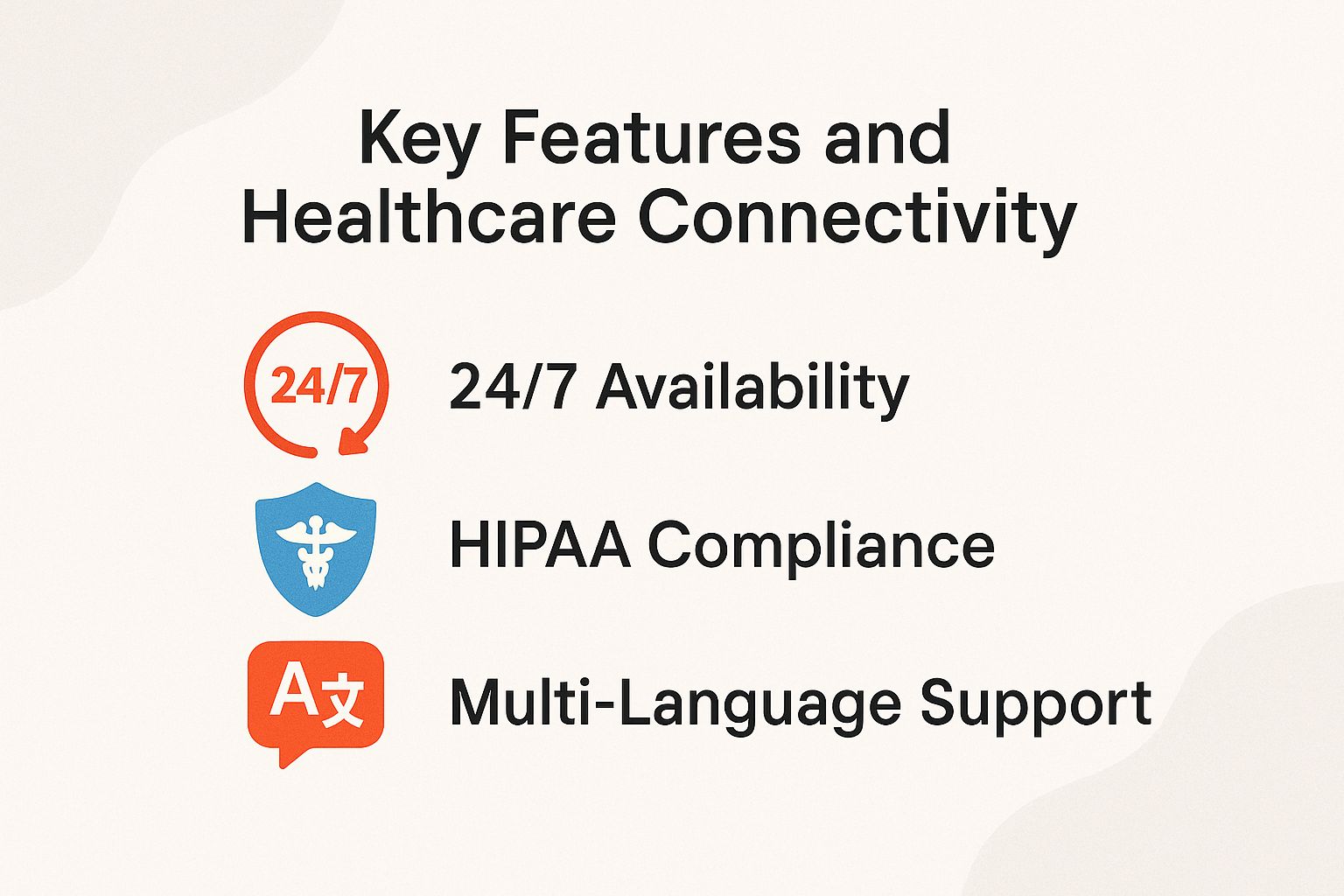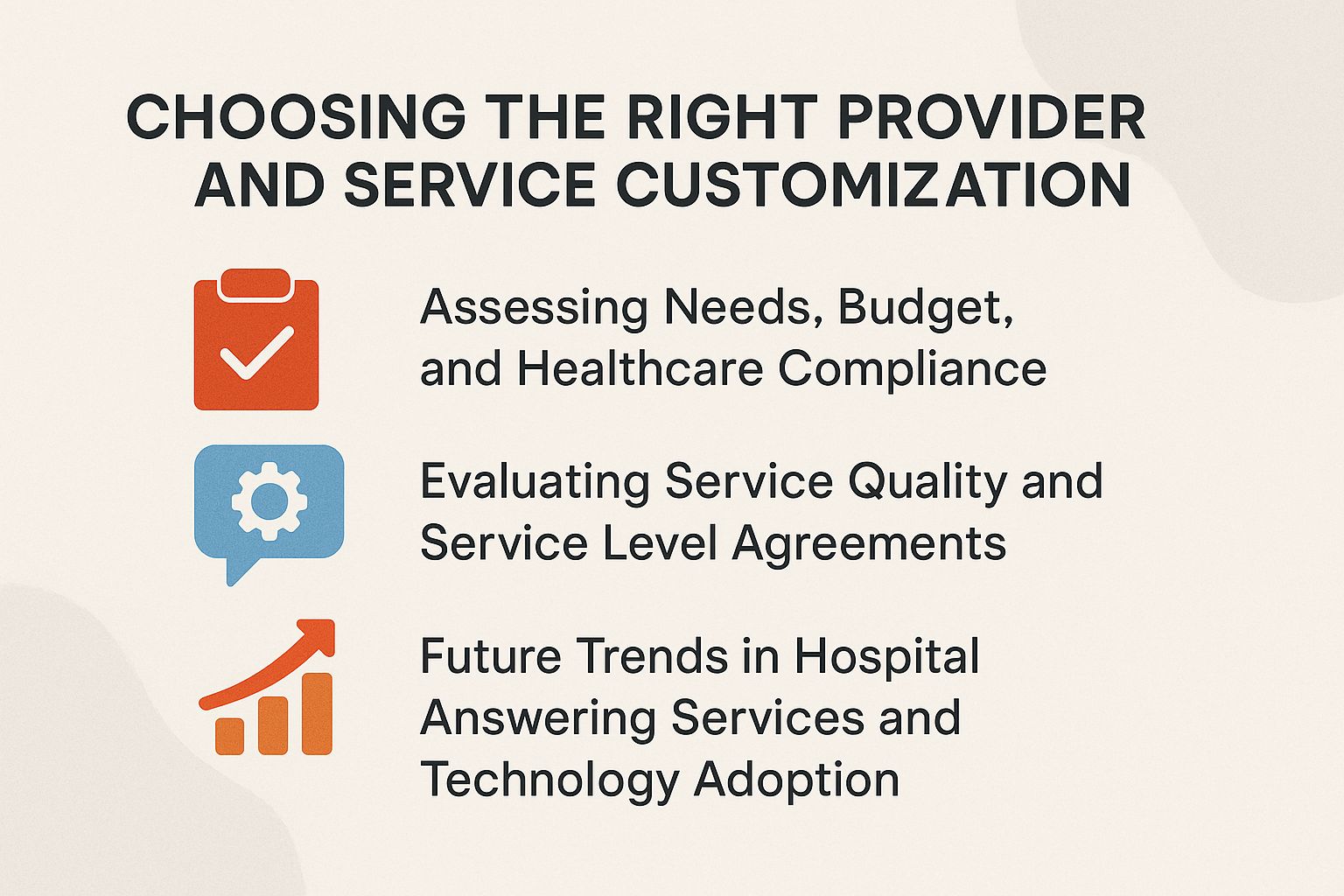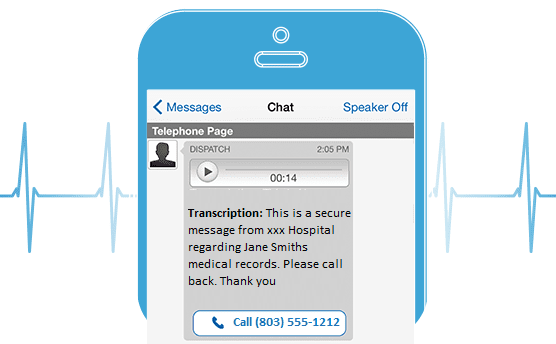
Inbound Call Answering Services For Hospitals & Clinics
Connect your Hospital’s callers with cheerful, intelligent receptionists 24/7/365. Describe your medical call center service needs and we’ll get you same day quotes from the nations most reliable medical calls centers. Learn More
In healthcare, each call is important. Hospital answering services are very important for making sure patients get help quickly, even outside regular hours. Knowing these services is key to better patient communication and running operations more smoothly. This article looks at the various kinds of hospital answering services, their main features, and how to select the best provider. Learn how these services improve healthcare and what changes to expect in the coming years.
Call Answering Solutions For Hospitals:
- Hospitals
- Ambulatory Services
- Patient Outreach
- Appointment Reminders
- Triage Calls
- Call Overflow
Definition and Purpose of Healthcare Answering Systems
A hospital answering service is a specialized solution designed to handle incoming patient calls, ensuring timely responses to inquiries and integrating medical call center functionalities.
This service typically includes features such as call routing and interactive voice response, where calls are directed to the appropriate department based on patient needs.
Many services assist with booking appointments and sending alerts, simplifying the process for staff to organize and adjust patient visits.
Having after-hours service and emergency dispatch support is important because it offers help at any time for urgent questions.
For instance, using a provider like AnswerFirst can improve overall patient satisfaction by ensuring no calls are missed, particularly in high-demand situations, resulting in better patient care and efficient operational management.
Importance in Healthcare Communication
Effective communication through hospital answering services and healthcare support can significantly improve patient satisfaction scores and operational workflows.
Research shows that utilizing professional answering services reduces wait times for patient inquiries by up to 50%. For instance, services like Answering Service Care and Call Center 3 offer 24/7 support, ensuring patients can reach someone any time.
This constant availability leads to a reported 20% increase in patient satisfaction, as they feel their concerns are prioritized. Connecting these services with hospital management software can simplify patient data management, improving the experience and how the system works.
Types of Hospital Answering Services and Healthcare Automation

Various hospital answering services meet the unique communication needs of healthcare facilities, offering wide-ranging support.If you’re interested in understanding the critical elements to consider when selecting a medical answering service, you might find our insights on what matters most when choosing a medical answering service particularly useful.
Standard Call Handling and Voicemail Management
Standard call services handle routine patient questions, setting appointments, managing follow-ups, and triage services smoothly.
To handle calls well, many providers use software like RingCentral and Zocdoc to organize communication and appointments.
For example, you can set response times for appointment questions to less than two minutes, which helps improve patient satisfaction.
Staff are trained to address common issues, such as rescheduling appointments or confirming insurance details, ensuring a smooth process.
Incorporating templates for frequently asked questions can also save time and maintain consistent messaging, allowing staff to focus on more complex inquiries as they arise.
Emergency Response Services and Crisis Management
Emergency response services are essential in healthcare, offering quick communication during emergencies to safeguard patients and maintain healthcare effectiveness.
These services employ immediate call escalation protocols, ensuring that when a critical situation arises, the response team is alerted without delay.
Hospitals such as Cleveland Clinic have a system that allows nurses to make urgent calls using mobile apps and special emergency phone lines.
Staff undergo specialized training, including real-life simulations, enhancing their readiness for diverse emergencies. This proactive approach has been instrumental in improving response times and patient outcomes, highlighting the importance of equipped and trained personnel in healthcare settings.
Key Features and Healthcare Connectivity

Main aspects of hospital answering services make sure they meet the particular needs of healthcare providers, ensuring quality assurance and continuing to uphold quality care. The integration of telemedicine is a pivotal development in this field, as discussed in The Rise of Telemedicine: Navigating the New Era of Healthcare.
24/7 Availability
24/7 availability and real-time updates are non-negotiable features for hospital answering services, allowing patients to reach care providers at any time.
This constant access greatly improves patient care. Studies show that hospitals with round-the-clock services report up to a 20% increase in patient satisfaction.
Timely responses reduce the likelihood of complications by 15%, as patients can voice concerns or schedule appointments without delay.
Using a strong answering service like AnswerFirst or Call Dispatch can simplify communications. They provide features like call scripting and emergency screening to make sure important messages quickly reach the correct providers.
Spending money on these services improves how well things work and builds trust with patients.
HIPAA Compliance
Following HIPAA rules is essential for hospital answering services to keep patient information and patient privacy private and secure.
To follow regulations, answering services need strong security steps like encrypting information as it is sent and using safe methods to store it.
Regularly train staff on HIPAA rules and carry out regular checks to find weaknesses.
Failing to follow rules can result in heavy fines; for example, companies might be charged between $100 and $50,000 for each infraction, based on its seriousness.
Ensuring that all communications are documented and patient consent is obtained before disclosing information further solidifies compliance efforts.
Multi-Language Support
Multilingual support in hospital answering services makes it easier for patients from different backgrounds to access care, leading to better communication and service.
Hospitals can greatly increase patient involvement and satisfaction by providing services in two languages. Hospitals like NewYork-Presbyterian have experienced a 30% increase in appointment attendance by Spanish-speaking patients after they introduced bilingual services.
Using tools such as Google Translate for initial communications and hiring bilingual staff can facilitate smoother interactions.
Getting feedback from patients using surveys can help make language services better, ensuring they match what patients need and prefer.
Benefits of Using Answering Services and Service Innovation

Hospital answering services offer several advantages by improving communication between patients and staff, which leads to better efficiency overall. For those looking to enhance their practice further, understanding the benefits of medical answering services that propel your practice forward can be crucial.
Improved Patient Communication and Telemedicine Solutions
Answering services improve patient interaction, enabling healthcare providers to communicate well with their patients through various channels, including telehealth services.
These services make communication easier by using tools like CallRail, which lets you track call data like how quickly calls are answered and the number of calls.
For example, by analyzing call data, providers can identify peak hours for inquiries and adjust staffing accordingly.
Implementing follow-up notifications can improve patient engagement rates by over 30%. Using a structured method improves patient satisfaction and makes operations run smoother, which is important for today’s healthcare practices.
Increased Operational Efficiency and Digital Communication
Hospital answering services can simplify tasks, lower expenses, and make work processes smoother.
By outsourcing call handling, hospitals can reduce the need for on-site staff, often saving up to 30% in labor costs.
For example, if a facility typically employs four full-time receptionists at $40,000 each, transitioning to a service like Answering Service Care (starting from $200/month) could yield an ROI of nearly $150,000 annually.
These services are available 24/7, ensuring that patient questions are answered promptly, leading to higher satisfaction scores.
Consider adding a service that provides instant reports and data analysis to consistently improve how you engage with patients.
Choosing the Right Provider and Service Customization

Choosing the right answering service provider is essential to fulfill the unique needs of your hospital or healthcare facility. For an extensive analysis of what factors are most crucial, our comprehensive study on choosing a medical answering service offers valuable insights.
Assessing Needs, Budget, and Healthcare Compliance
Assessing your hospital’s needs and budget is the first step in choosing an appropriate answering service provider.
Begin by identifying the specific services your hospital requires, such as 24/7 availability, bilingual staff, or appointment scheduling capabilities.
Evaluate your budget by determining how much you can allocate monthly without compromising patient care. For example, consider using a service like:
- Answering Service Care, which offers plans starting at $65 per month
- Ruby, which provides a more premium service starting at $249 monthly
Make sure the provider follows HIPAA rules to protect patient information while offering full support.
Evaluating Service Quality and Service Level Agreements
Checking how well the service works, including voice recognition and call analytics, is necessary to confirm a hospital answering service meets its working standards.
To effectively assess service quality, focus on specific metrics like call resolution rates and customer satisfaction scores.
Use tools like Zendesk to monitor these metrics regularly, enabling real-time analysis. For example, a call resolution rate above 90% typically indicates effective handling of inquiries, while regular customer satisfaction surveys can reveal areas needing improvement.
Think about checking how fast calls are answered; trying to answer calls in less than 30 seconds can really improve how happy patients are.
Regular training sessions for staff based on these metrics can further improve service quality.
Upcoming Developments in Hospital Answering Services and Use of Technology
Emerging trends in hospital answering services will focus on integrating telemedicine support and enhancing accessibility for patients.
Modern medical answering services are using AI chatbots for patient follow-up to simplify communication with patients. For instance, tools like Ada Health allow patients to describe their symptoms and receive instant feedback, reducing call volumes and improving engagement through efficient call volume management and service reliability.
Services like SimplePractice provide seamless appointment scheduling through multiple channels, including text, email, and voice messaging, enhancing multi-channel support. This trend makes things work better and helps patients access medical information through various methods, letting them select the way they like best, increasing patient contact and involvement. Related insight: Why Your Medical Practice Needs After Hours Answering Services
As these technologies change and grow, hospitals will likely notice better patient satisfaction, smoother operational processes, and improved patient experiences due to system integration and healthcare logistics.

